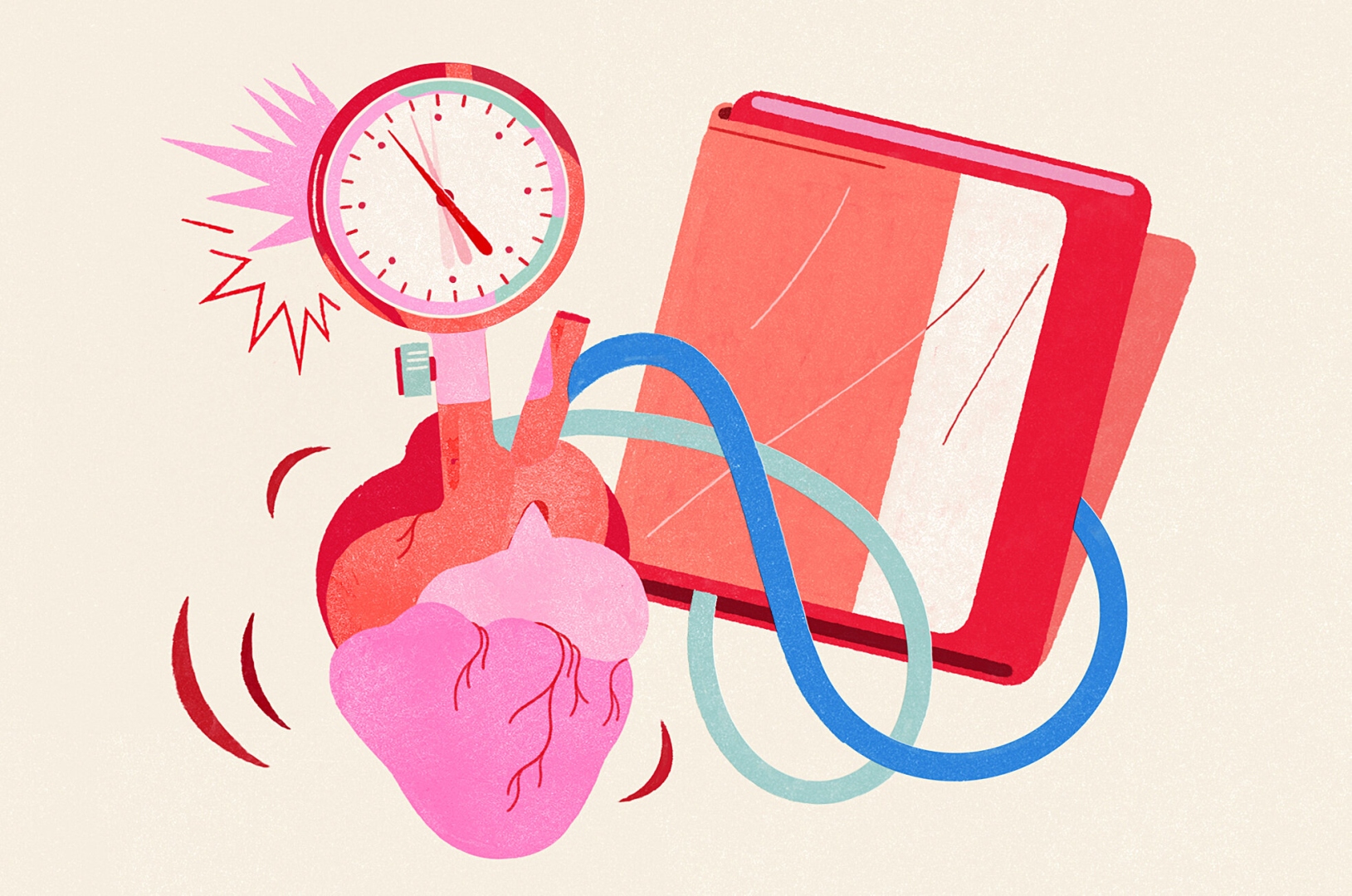According to the World Health Organisation, it is estimated that at least one in four adults in India has hypertension. But only about 12 per cent of them have their blood pressure under control

Hypertension, or high blood pressure, is a common health condition affecting millions of people in India. According to the World Health Organisation, it is estimated that at least one in four adults in India has hypertension. But only about 12 per cent of them have their blood pressure under control.
As per WHO, India aims to achieve a 25 percent reduction in the prevalence of hypertension (high blood pressure) by 2025, relative to the current levels. Hypertension is a condition in which the force of blood against the walls of arteries is consistently too high. But people can adopt lifestyle tips to reduce their hypertension risk.
How is blood pressure measured
Blood pressure is measured in millimetres of mercury (mmHg) and consists of two numbers: systolic pressure (the top number) and diastolic pressure (the bottom number).
A blood pressure measurement below 120/80 mmHg is within the normal range, while a reading of 140/90 mmHg or higher is considered indicative of high blood pressure. Blood pressure between these two ranges is considered pre-hypertension.
Common symptoms
Hypertension is a common health problem and often has no noticeable symptoms. Yet there are certain signs to indicate high blood pressure in your parents. However, high BP can cause damage to blood vessels and organs over time, increasing the risk of heart disease, stroke, kidney disease and other health problems. However, it is preventable and manageable.
Lifestyle changes to manage hypertension risk
Making certain lifestyle changes can help lower its risk and improve overall health. Some of these lifestyle changes include:
>> Reduce salt intake
Excess salt intake is a leading cause of hypertension. It is recommended to reduce salt intake, limit the consumption of processed foods, and other packaged products as they are high in sodium. Using herbs and spices to season food instead of salt is proven good. Additionally, including fresh fruits and vegetables and cooking at home also helps in controlling the salt intake.
>> Exercise regularly
Regular exercise can also help in lowering the blood pressure and improvise the overall health. It is advised to move your body for at least 150 minutes including moderate-intensity exercise per week. Include brisk walking, cycling or swimming. To enhance muscle growth and increase metabolism, it is advised to include exercises that focus on strength training.
>> Maintain a healthy weight
Obesity is a significant risk factor for hypertension. Maintaining a healthy weight through regular exercise and a balanced diet can help lower blood pressure. To promote overall health, it is recommended to engage in physical activity regularly. Additionally, including strength training exercises can help increase muscle mass and boost metabolism. Choose a healthy, balanced diet that includes plenty of fruits, vegetables, whole grains, lean protein, and healthy fats.
>> Manage stress
Stress can cause temporary spikes in blood pressure, and chronic stress can lead to hypertension over time. To alleviate stress, consider practising relaxation techniques such as deep breathing exercises, meditation or yoga. Regular exercise, high-quality sleep of 8 hours, and social support can also help manage stress levels. Avoid or reduce stressful triggers when possible, and practice self-care activities such as reading, listening to music, or spending time in nature.
>> Limit alcohol consumption and quit smoking
Excessive alcohol consumption and smoking can increase blood pressure and increase the risk of hypertension. If someone has high blood pressure, it is recommended to avoid alcohol and smoking altogether.
>> Adopt the DASH Diet
The Dietary Approaches to Stop Hypertension (DASH) diet is an eating plan that is rich in fruits, vegetables, whole grains, protein and low-fat dairy products. It is also low in sodium, saturated fat, total fat, and cholesterol. The DASH diet has been shown to lower blood pressure and reduce the risk of hypertension. Aim to consume more fruits and vegetables each day, choose whole grains over refined grains, and opt for protein-rich sources such as poultry, fish, beans, and nuts.